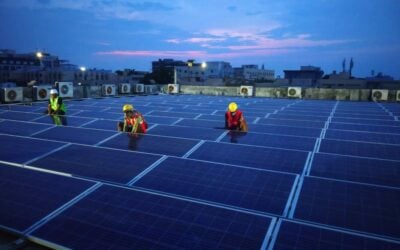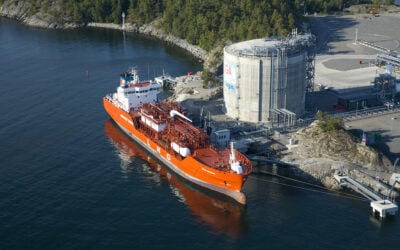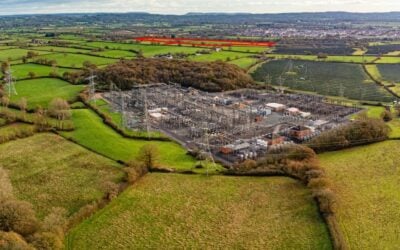
More than 5% of Spain’s renewable energy generation could face economic curtailment between 2025 and 2030, but long-duration energy storage (LDES) could reduce or eliminate that need.
That’s a key takeaway from analysis of the European country’s energy sector by Aurora Energy Research, published in a new study commissioned by Breakthrough Energy.
Enjoy 12 months of exclusive analysis
- Regular insight and analysis of the industry’s biggest developments
- In-depth interviews with the industry’s leading figures
- Annual digital subscription to the PV Tech Power journal
- Discounts on Solar Media’s portfolio of events, in-person and virtual
Or continue reading this article for free
Economic curtailment occurs when running costs of generators exceed wholesale electricity market prices payable for their power sold, leading operators to reduce power output or risk losing money.
Spain wants renewables to account for 81% of total electricity generation by 2030, almost double the already high share of 42% it recorded in 2022. That means an increase of 173% in installed renewables capacity between 2022 and 2030.
The new goal is set out in Spain’s National Energy and Climate Plan (NECP). As reported by sister site PV Tech in late June, that includes 76GW of solar PV capacity by the end of this decade, up from a previously set 39GW target from 2020. Of that sum, 19GW should be self-consumption solar PV systems, leaving a considerable amount of solar to be fed into the grid.
As noted by Aurora in its 89-page study, the planned target for energy storage has also gone up from 9GW in the 2020 NECP to 18GW, along with 10GW of electrolysers (up from 4GW) and 61GW of wind, up from a previous 49GW target.
Higher electrification and decarbonisation goals mean shifting of renewable energy from time generated to the time it is needed, as well as a greater need for grid services and measures to ensure security of electricity supply.
Lithium-ion batteries, currently the most widely used energy storage technology in new deployments, can effectively offer short to medium duration storage to deliver ancillary services and smooth out variability of renewables for a few hours.
However long-duration storage, defined as technologies with a storage and discharge duration of between eight hours to four days, could be a “vital” solution to enabling the race to net zero while reducing power system costs and curtailment alike, according to Aurora.
Long-duration energy storage (LDES) technologies would be a cost-efficient way to reduce reliance on gas to balance the growth of renewable energy capacity on the grid to 85GW, Aurora said. It could eliminate economic curtailment by 2035, while 15GW of LDES could offer around a €1 billion “advantage” in system costs between 2025 and 2050, according to the group’s modelling.
Due to lowered natural gas use, LDES could also get Spain’s power sector to net zero five years faster than in other scenarios, and play a strong role in decarbonising the industrial sector, accounting for 40% of the energy used in industrial heat processes, which are traditionally hard to abate emissions from.
NECP targets ‘simply unfeasible’ without LDES
However, LDES, which encompasses a broad range of technologies, does not yet have a path to market in Spain. That’s a barrier common to many regions of the world today, but specific to Spain, Aurora noted that the country’s 18GW target for energy storage by 2030 does not currently include consideration of long-duration needs.
One argument sometimes leveled at LDES is that many of the technologies are still more expensive, especially on a Capex basis, than shorter duration lithium-ion. According to Aurora Energy Research, cost declines will be achieved for LDES, but will require the scale-up of manufacturing and deployment.
Aurora advisory associate Inês Gaspar said the costs of LDES will fall over time, as has been seen with solar PV and battery storage, but that accelerating cost decreases will require action now to “ensure that prospective developers have the necessary policy support and opportunities to monetise the value that these assets bring to the national power system in the long term”.
Aurora head of energy research for Iberia and Latin America Ana Barillas said that given the clear case in favour of LDES, “Spain now needs a comprehensive policy and regulatory framework that enables its deployment”.
The NECP’s ambitious renewable energy targets are “simply unfeasible without LDES and the increased electrification of industry,” Barillas said.
“LDES can not only help avoid the curtailment of renewable generation, but also to provide key grid services that are needed when such a large portion of the generation mix is intermittent, as is the case in Spain. Further, thermal storage can make effective use of renewable energy to decarbonise industry at relatively low costs compared to other low-carbon providers of high-temperature heat.”
Similar studies have drawn conclusions in favour of market and regulatory structures to support LDES in the UK and other territories, while the LDES Council, a trade group formed to represent and promote the technologies worldwide has produced a series of global reports with McKinsey.





